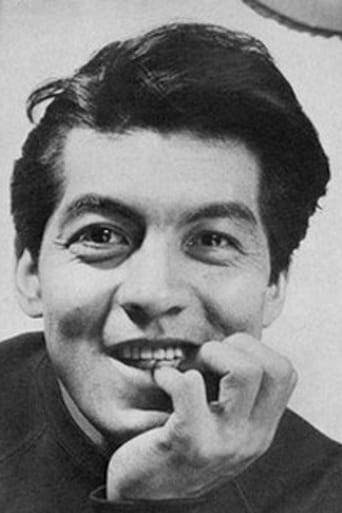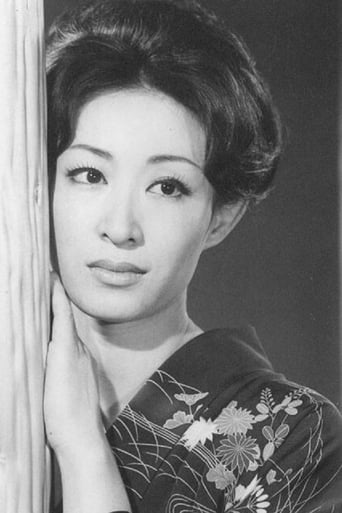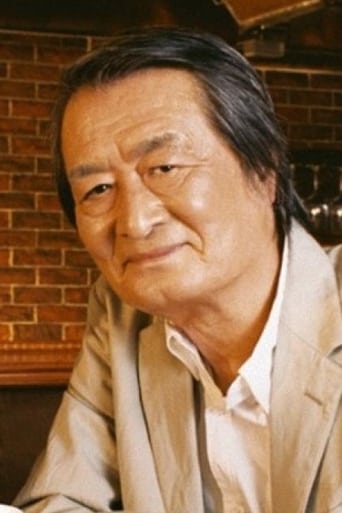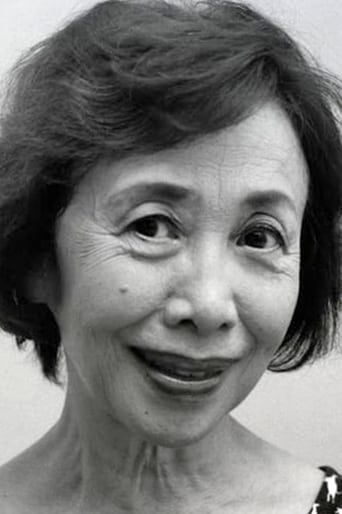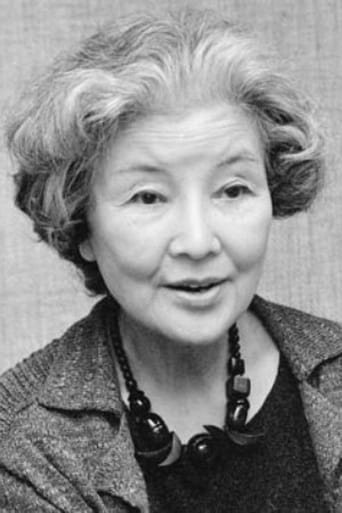ThiefHott
Too much of everything
Actuakers
One of my all time favorites.
Brenda
The plot isn't so bad, but the pace of storytelling is too slow which makes people bored. Certain moments are so obvious and unnecessary for the main plot. I would've fast-forwarded those moments if it was an online streaming. The ending looks like implying a sequel, not sure if this movie will get one
Freeman
This film is so real. It treats its characters with so much care and sensitivity.
kurosawakira
Teshigahara is one of the many unsung heroes of cinema, his most famous work, "Women in the Dunes" (1964), a landmark of not only Japanese but world cinema, followed by other existentially and metaphysically audacious works."Rikyu" (1989), his second to last film, exists in a different world altogether. Gone is the hectic energy of the sixties, replaced by a meditative immersion in the small. As such, it's very much to my liking. What certainly helps is that I love matcha, that I know Teshigahara and have some knowledge of ikebana and the way of tea.At IMDb, it's only received 427 votes as of 31 December 2015, albeit with a rather high 7.4 average. Despite this I've not found much love for Rikyu elsewhere. It's often dismissed as late Teshigahara, where "late" signifies similar insubstantiality as in "late Welles". (The opinion according to which Welles made one great film and others only of some worth seems to be the prevalent opinion in the mainstream.) But I love it dearly. It's unassuming, exactly the kind of film that embodies Rikyu's first of seven rules of chanoyu, the ritual we know as the tea ceremony: "arrange the flowers as they grow in the fields." Teshigahara's eye for such radical simplicity is pointed out in the film by the Portuguese missionary, who marvels at the Japanese way of leaving blank space in their paintings. When there's space, there's also remarkable focus but such that doesn't suffocate.A few words should be said about the acting. I've been an avid admirer of Mikuni Rentarô ever since he and I crossed paths in Imamura's seminal works "Profound Desires of the Gods" (1968) and "Vengeance is Mine" (1979). His Rikyu is exquisite: introverted, priestly and ritualistically deliberate, yet all the same a deeply passionate and feeling individual. This powerful dualism between introverted and extroverted is emphasized by the lord's exuberance, but also in the moments Of Rikyu's agitation.And then there's Yamazaki Tsutomu. His Toyotomi is a force of nature, a delight one moment, a terrifying blast of thunder the next. He's a towering, tragic figure. His expression as the plan of poisoning is introduced to Rikyu in the meeting is the iconic moment for me, an image so strong I'm bound never forget, a moment of multiform emotions, a roll of waves.The rest of the cast shines, too, without exception. Not only are they superb artists, but much of this owes to a masterful director. Takemitsu, an artist in his craft equal to Teshigahara and Rikyu, makes the air tingle with his music.When this is available in HD in an English-friendly edition, let me know. I'll be forever grateful.
David
Without knowing much of the history, I found this to be very absorbing - slow tempo or not - and Teshigahara's understated style is perfect. The performances (especially the title character) are top-notch, and the heavily detailed sets are stunning.That noted, the DVD available in the US is one of the worst I've ever seen - the pan-and-scan, along with butchering Teshigahara's marvelous compositions, also renders the subtitles unintelligible in spots, and they disappear in brightly lit scenes. The DVD picture quality is grainy, washed-out and blurry, and several weird cuts (especially the scene in which Stefano leaves) betray a transfer from a hastily (or sloppily) edited source. The film is great enough that I'd encourage a viewing, but beware that (if you watch the DVD) that the quality will be atrocious.
tedg
Spoilers herein.Film can be something thinly exploited for pleasure, or it can serve as tool for living. Many films span the two existences, but not this one. If you are looking for a way to amusingly spend time, this isn't for you. But if you want something that is intensely lush and explicitly meditative, is zen in subject but a polemic in form, this could be important.
First a warning, the Slingshot DVD is a crime against humanity -- it has taken something lush and wonderful and trampled repeatedly on it. The colors are washed out; the transfer is fuzzy, the sound loud and distorted, the subtitles often unreadable. Its apparent pan and scan is not obviously offensive, but the very idea of changing these compositions is repellant. See it in a theater if you can.Film master Akira Kurosawa is Professor Hyakken Uchida in his later `Madadayo;' likewise floral master Hiroshi Teshigahara is tea master Rikyu in this film.For background: Rikyu was an extremely important figure, one can almost say that he invented the core of what it means to be Japanese. He interpreted some rather abstract Shinto notions into a manner of relating to ordinary customs, objects and environments. At precisely the time that Shakespeare was doing something similar in inventing the modern human thereby escaping medieval barriers, Rikyu was reshaping many of the same medieval barriers into noble form.All film derives from the `Shakespearean' influence, and it is the work of Teshigahara to re-form the principles of quiet engagement with the refined simple life with the folding an refoldings of self-awareness. So when he makes a film like this, it is much in the same vein as Tarkovksy's masterwork : `Andrei Rublyov,' a creator of (static) images who invented the soul of Russia. That is to say, Teshigahara is about reinventing us, and he is a trustworthy master on this voyage.Most know that he heads the influential Sogetsu school of ikeban (the philosophy of expression in "floral" arranging and viewing). It takes previously staid notions of balance/imbalance (`katachi') into radical new, self-aware directions. It is not merely a matter of decorative style, instead an enfolding of western reflection into the meditative symmetries of what Rikyu spawned.The story, bound by actual history, is rather simple and is unrolled in straightforward fashion. What is important here is the depiction of the master, and what it means to be a master. The plot turns on Rikyu's unexpected and radical approach to arranging plum blossoms, which is the real offense against his vulgar ruler.Yes, this is slow by western standards. Yes, the quality of the artifact is ruined, a broken bowl. But for students of life, this is worth looking into.I only know two other of Teshigahara's films; filmmaking is only annotative to his ikeban, and he makes few. But he makes then as if he were speaking, or moving. The first is the remarkable `Woman in the Dunes.' The second I know is an examination of the architect Gaudi, a truly profound thinker -- a master -- who deserves to be ranked with Shakespeare and Rikyu. That film is ordinary in effect, but the ideas behind it are as powerful as those behind `Rikyu.'Ted's Evaluation -- 2 of 4: Has some interesting elements.
stan-74
This is a very Japanese and Zen Buddhist film. The observations are almost painfully clear and intense, there is great attention to detail, it is highly ritualized and formal, and moves very slowly. To be appreciated, it must be viewed as a totality, rather than as a linear story with a beginning and an end. It is a snapshot stretched over 2 hours, and very much "there". It's a lot like a Zen garden, and most Americans will probably find it boring, but if you're into the peculiar Japanese view of time, it's such a beautiful film, it almost hurts.

